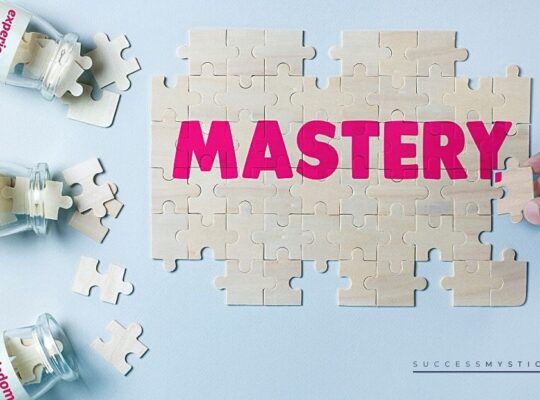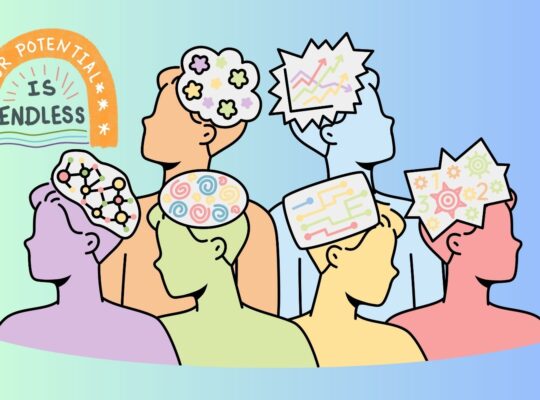Who Are You?
What is it that makes you who you are? Perhaps, more to the point, who are you?
That was not intended as a rhetorical question – I would like you to answer it.
Who are you?
Did you answer a focus on the fact that you are a parent, sibling or a friend? Perhaps a specific career position. How did you identify yourself?
Or, did you focus on something else? Did you instead focus on how you perform at your job, hobby or in those relationships?
Maybe you instead focused on your traits, such as kind, hard-working, laidback or intelligent.
There is no real wrong answer to the question, let’s be clear on that. The point is that your answer has stemmed from your internal compass, your personal sense of who you are. This is something we develop in our early years, but it is constantly evaluated as we grow.
Our sense of self adjusts and evolves as we get older and experience different parts of life.
All of this boils down to one thing – self-concept.
This is the general psychological term that we use to refer to how someone perceives themselves. Your awareness of yourself is your self-concept.
There are two aspects of self-concept.
2 Aspects Of Self Concept
Existential Self
The most basic aspect of self-concept. It’s the idea that you are separate and unique from others. It’s the awareness of self. As a child, you realize that you are separate from others, you are your own entity and you exist outside of others. Just as they exist outside of you.
Do you remember coming to that realization as a child? The moment you leave your friends and go home to do your own thing and it hits you like a lightning bolt. Just because you left them doesn’t mean they cease to exist.
Their lives continue apart from you, just as yours does the same. It sounds like a basic piece of knowledge, but children have to come to that conclusion. Before they do, it can be difficult to understand that their friends aren’t available at their beck and call.
What children do come to realize, as early as just a few months old, is when they reach out and touch a toy it moves. When someone smiles at them, they respond by smiling back (well, sometimes). That’s quite an evolution, isn’t it?
Categorical Self
As far as your categorical self goes, you eventually come to realize that you are more than just an object, but that you are indeed an object.
All objects have properties and humans are no different. A ball can be big, smooth, and red, but it can also be small, textured, and blue. Just as you have properties. For example, the first two categories children typically learn are age and sex.
They hold up two fingers when you ask how old they are and make pronouncements like “I’m a boy, are you a boy?” Then come the concrete properties like hair and eye color, then properties like height, favorite color, favorite toy. As time moves on, we learn to include other traits.
The Three Components
While there are two aspects to self-concept, many experts believe there are three components.
1| Self-Image
This is the view that you have of yourself. What is important about self-image is that it isn’t necessarily rooted in reality. For example, someone with an eating disorder doesn’t see themselves in the mirror as the world sees them. They are convinced they are overweight.
Our self-image, while it’s how we see ourselves, is formed and impacted by a variety of factors, including the media, and friends and family influences.
It can best be summed up by asking the question we highlighted earlier – who am I? Typically, people respond with personality traits or social roles. However, some people may provide a physical description or abstract existential statements like I am the essence of those who have gone before. It’s young people who typically seize on personal traits and older people who define themselves by social roles.
2| Self-Worth
This is the value that you place on yourself and is often used interchangeably with self-esteem.
How much do you approve of yourself? Do you accept yourself for who you are? Do you value yourself? There’s always a degree of self-evaluation when it comes to our self-esteem. This evaluation will highlight whether our views are overwhelmingly negative or positive.
Possessing a high level of self-esteem means you’re confident in your abilities, that you accept yourself as is, that you’re optimistic and unmoved by the opinions of others.
On the flip side, a lack of self-esteem often comes with feelings of pessimism, low confidence, the desire to be like someone else (whether in looks or actions), or a worry about what others think.
You can measure this in a variety of ways, but four factors heavily influence your self-worth.
- Reaction
How do others react to you? Do they flatter and admire? Do they listen attentively when you speak, nodding along and building your self-image? Or, do they neglect you, speak harshly, and tell you all your negatives? This influences your self-worth.
- Comparison
Are the people in your peer group happier? Are they better looking, richer or more successful? Comparing yourself to others often leads to a negative self-image. Of course, if you are happier and more successful these comparisons may cheer you up, but… if you are truly happy, you wouldn’t be tempted to make comparisons, would you?
- Social Roles
Do you get caught up in titles and labels? When you hear someone identify as a doctor, lawyer, or regional manager you respond positively. Then, there is the stigma that other roles carry – how do you respond when someone says they’re a barista, unemployed or a waste collector?
- Identity
The roles we fill don’t just describe what we do, they form part of our identity. We allow this to form our personality and we play into it, choosing the role we play based on this and using it to guide the groups we join or belong to.
3| Ideal Self
Exactly as it sounds, your ideal self is what you wish you were. Is there a gap between your self-image and your ideal self? How far apart are the two? Is the gap real? Often, we evaluate our self-image incorrectly and it feels as though we have far greater a journey on our hands than the reality suggests.
Of course, if this is your situation, then you have a journey on your hands. You have to learn to challenge and change your negative self-concept.
The mismatch between your ideal self and self-image likely heavily influences your self-worth. The three are intimately intertwined. Often, our ideal self is inconsistent with other areas of our lives. This is incongruence. The dictionary definition is essentially a contradiction between word and action. ref.
Congruence is achieved when your experience and your ideal self-align or at least come close to aligning. Rarely do people experience total congruence. So, if you experience incongruence, there is no need to worry. You likely always will, at least to some degree. This all ties back to the four factors we discussed above.
The Importance of a Positive Self-Concept
So, why does self-concept matter? Why is it important to possess a positive one and how does it really impact your life? It’s easier to understand when you take a look at how it influences your life.
Your self-concept plays a role in how you manage your emotions, but it also dictates how effectively you solve problems, set and strive for goals, and how far you are willing to step outside of the comfort zone. It also influences how you confront obstacles, tackle challenges, and deal with problems.
If you possess a healthy self-concept it will positively influence how you interact with others, how you speak and think about yourself, as well as how you view your circumstances. When you put all of this together, it becomes clear just how important a positive self-concept is to your happiness and success.
Effectively, it determines what you do or don’t do at any given time. Therefore, it heavily influences your potential to achieve the success you dream of and to find the happiness you deserve.
The Symptoms of a Negative Self-Concept
If you fear your self-concept is dragging you down, then it’s time to take a deep dive into what your self-concept says about you. A negative self-concept is going to limit your progress, it will serve as an obstacle that stands between you and what you want out of life.
There is nothing more frustrating than knowing exactly what you want but being unable to make it happen because you have convinced yourself it won’t, can’t or shouldn’t happen. I can’t do it because I’m not good enough. It shouldn’t happen to me because I’m lazy.
It won’t happen because that luck is for other people. It isn’t about luck. First, you need to improve your self-concept and understand that you can do or be whatever you want, you have to start by believing in yourself.
Having a negative self-concept is going to drag you down. It’s going to rob you of happiness. It will prevent you from fulfilling your potential. So, what are the signs and symptoms of a negative self-concept?
Let’s take a look.
- You struggle with giving and accepting affection.
- You constantly compare yourself to others.
- You’re often jealous of the achievements of others.
- You are unable to accept any compliment from anyone on any subject.
- You don’t just constantly criticize yourself; you do the same to others as well.
- When negative self-talk takes over you don’t dismiss it, you indulge it.
- You frequently feel guilt or shame about what you would have, should have or could have done.
- Instead of attending to your needs first, you busy yourself catering to everyone else.
- You struggle with your physical health.
- You struggle with your emotional health.
Please note that you may struggle with some of these symptoms individually or a couple of them even. That doesn’t necessarily mean you have a negative self-concept. However, if you can tick four or more items on this list, then it is indicative of a self-concept problem.
So, do you have a negative self-concept? If so, it’s time to commit to changing it. That means you have to upgrade your actions, thoughts, decisions, and beliefs in order to move forward. It’s the only way you can change your self-concept and regain control to optimize your life.
It all breaks down to these signs and symptoms and what they indicate. Ultimately, they are defense mechanisms that we fall back on believing that we are protecting ourselves. Your mind (and body) may be trying to cope with the events that life has thrown your way. However, these defense mechanisms aren’t healthy coping strategies. They don’t work out to your advantage. Rather, you give into limiting behavior trying to make yourself a bit better.
For example, you shift gears, slipping into denial mode. Nothing is wrong here; you whisper to yourself despite mounting evidence to the contrary.
You make assumptions that have no basis in fact, but you’d prefer to continue looking through those rose-colored glasses. The same goes for justifications for action (or inaction).
Rather than listening to others, you launch a verbal onslaught to attack, whether it’s others or yourself, all based on your false perceptions.
Life’s a beach and then you die. You make the choice to wallow in negativity because why bother trying when nothing goes your way?
You distract yourself with alcohol, drugs or other vices, all to avoid the reality.
These are all coping strategies that we attempt to use to exert control. The problem is they are negative, and they don’t work. They may provide you with temporary relief, but they are damaging in the long-term.
When you struggle to deal with reality, you turn to things that will only hurt you more. Yet, if you cannot learn to accept the truth, you won’t be able to make the changes to your self-concept, which means you won’t be able to change your life.
Changing Your Self-Concept
This isn’t an easy undertaking. To truly change a negative self-concept, you will need time, patience, and a commitment to making an effort. As you embark on this journey, you will need to let go of negative, unhelpful thoughts. You will have to challenge limiting beliefs and let go of old habits.
What you are doing is questioning the value of how you have been living life thus far. That means questioning many decisions and choices you have made. To be clear, this isn’t about focusing on your past or even beating yourself up. It’s about growing your awareness of how your self-concept has shaped your life thus far and how you can change it to positively shape the next stage of your life.
If you make choices that keep you in your comfort zone, if you make decisions that push you away from your goals or act in ways that do not align with your values – what are you doing? You will obviously have a negative self-concept because you’re acting against your own interests.
While it will be difficult, the transformation that will come from embarking on this journey will be worth it. You don’t need to live at the mercy of your incorrect view of reality. Nor do you need to wallow in negativity.
Repair your self-concept and take back control. When you’re back at the wheel where you belong, your confidence will come. With confidence comes power and it’s that personal power that you will use to transform your life.
Before you can move on and move forward, know this. The life you lead right now is a reflection of your emotional state. A healthy emotional state serves you well and will ensure you lead a quality life. We can improve our lives by learning which emotions to indulge and which to manage more effectively.
A healthy emotional state will positively influence your thoughts, better thoughts improve your actions, choices, and decisions. By making better decisions, you will see better results. It’s the knock-on effect and it all stems from your self-concept. Which brings us to this – it’s time to change your negative self-concept.
A Personal Contract
The idea behind this process is permitting yourself to change, to move forward. It’s about looking at what you need to change, making yourself responsible for that change, and committing to making the change.
If you look at that change and you can’t say yes to those three things, then you’re not quite ready to change. You’ll need to dig deeper to determine why that is. Of course, there might be things you are ready to move forward on – start there.
Bridging the Gap
Where are you now and where do you want to be? This might seem odd considering that you know exactly who you are, but there is a lot more to you and it’s bubbling away beneath the surface. So, this is your opportunity to ask the tough questions and determine whether you really know yourself.
Once you have done that, you can say okay here I am, but I want to be there. Look at the gap and determine how you can bridge it. Learning how to successfully bridge the gap is how you improve your self-concept.
So, think about who you are – socially, spiritually, physically, emotionally. Who are you in terms of failures, accomplishments, mistakes, goals, and social roles? So, who are you really? Who aren’t you? Why?
These questions are simply to help you identify how you see yourself now versus how you’d like to see yourself. This isn’t an exercise in bullying yourself so, don’t treat it as such. It’s all about perspective and gaining insights into yourself.
Once you know who you are now, you can move to the future version of yourself. Who do you want to become, how do you view yourself in the future, what kind of person will you be, how will you think, what qualities will you have? How will you speak about yourself, what habits will you have, what experiences will you have, what goals will you work toward?
When it comes to bridging the gap, which gaps are the most significant? Which ones are you closest to now? How can you bridge each of these gaps, starting now? Closing these gaps is what it takes to improve your self-concept.
Let’s be clear – your ideal self is achievable, as long as you are realistic. Like any goal, there is a need to make it simple and realistic. Once you bridge the initial gaps you can re-conceptualize your view and follow the process again. We all have to start somewhere and the best way to do that is to start small.
Remember, we often possess a self-concept that is not rooted in reality. We base it on how you perceive or interpret reality rather than the actual reality. If you have been building your life around a self-concept diluted by distorted perspectives and false assumptions, then you will need to continually challenge those. You can do that by addressing negative self-talk, challenging negative beliefs, and breaking negative thought habits.
If you find yourself struggling with confidence or always falling at the first hurdle, then start exploring self-love to bolster your confidence and build your self-concept. While you can accept that change is necessary, you should accept yourself as you are.
Learn to get comfortable in your own skin and start by getting to know yourself and learning how to enjoy just being with you. It’s all about reconnecting with yourself after losing sight of who you are.







